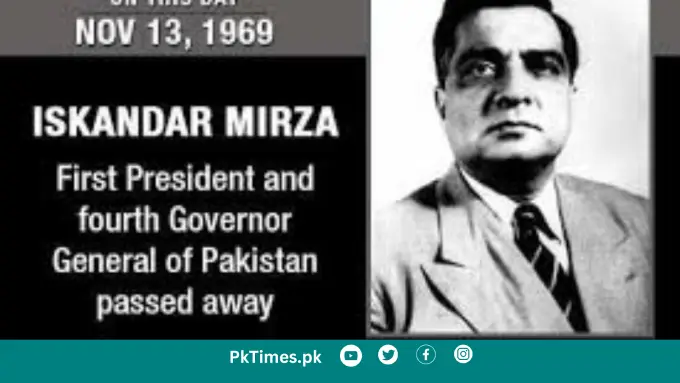As Pakistan emerged on the map of the world in 1947, it embarked on a journey of nation-building, with visionary leaders at its helm. Central to this leadership was the role of the president, tasked with steering the nascent nation through its formative years. In this blog post, we delve into the history books to uncover the identity of Pakistan‘s first president and explore their contributions to the nation’s early development.
II. Formation of Pakistan
The partition of British India in 1947 resulted in the creation of two separate nations: India and Pakistan. With independence came the need for a constitutional framework and a leadership structure to govern the newly formed states. Pakistan, as a sovereign nation, required a head of state to represent its interests on the global stage and guide its domestic affairs.
III. Muhammad Ali Jinnah: The Father of the Nation
At the forefront of Pakistan’s struggle for independence stood Muhammad Ali Jinnah, often referred to as the “Father of the Nation.” Jinnah’s unwavering commitment to the ideals of freedom, equality, and justice galvanized the Muslim community of British India and paved the way for the creation of Pakistan. In 1947, following the partition, Jinnah assumed the role of the first Governor-General of Pakistan, effectively becoming the de facto head of state.
IV. Jinnah’s Tenure as President
Muhammad Ali Jinnah’s transition from Governor-General to President marked a significant milestone in Pakistan’s history. As president, Jinnah played a pivotal role in laying the foundations of the new nation, grappling with the challenges of nation-building and governance. His leadership during this critical period helped shape Pakistan’s identity as a sovereign, democratic state committed to the principles of unity, faith, and discipline.

V. Legacy of Muhammad Ali Jinnah
Muhammad Ali Jinnah’s legacy extends far beyond his tenure as Pakistan’s first president. His vision for Pakistan as a progressive, inclusive nation continues to inspire generations of Pakistanis to this day. Jinnah’s unwavering dedication to the principles of democracy, equality, and social justice laid the groundwork for Pakistan’s democratic institutions and set the tone for its future trajectory.
VI. Conclusion
In conclusion, Muhammad Ali Jinnah’s role as the first president of Pakistan is indelibly etched in the annals of history. His leadership, vision, and unwavering commitment to the ideals of freedom and democracy laid the foundation for Pakistan’s emergence as a sovereign nation. As we reflect on Jinnah’s legacy, let us honor his memory by upholding the values of unity, faith, and discipline that he espoused and working towards a brighter future for Pakistan and its people.
Read more: how many cities in Pakistan
FAQ’s
1. Was Muhammad Ali Jinnah the first president of Pakistan?
No, Muhammad Ali Jinnah was not the first president of Pakistan. He served as the first Governor-General of Pakistan from 1947 until his death in 1948. After Jinnah’s passing, Pakistan’s leadership structure underwent changes, and the position of Governor-General was replaced by that of the President. Therefore, technically, Muhammad Ali Jinnah did not hold the title of president during his lifetime.
2. Who was the first president of Pakistan, then?
The first president of Pakistan was Iskandar Mirza. He assumed office in 1956 when Pakistan became a republic and adopted its first constitution. Islander Mirza served as the president until 1958 when he was ousted in a military coup led by General Ayyub Khan, who subsequently assumed power as the new president.
3. What were the contributions of Iskandar Mirza as Pakistan’s first president?
Iskandar Mirza’s tenure as Pakistan’s first president was marked by political instability and economic challenges. He played a significant role in the promulgation of Pakistan’s first constitution and the establishment of a republican form of government. However, his presidency was marred by allegations of corruption and authoritarianism, ultimately leading to his removal from power in the military coup of 1958. Despite his contributions to the formalization of Pakistan’s governance structure, Iskander Mirza’s legacy is overshadowed by the tumultuous political climate of his era.


